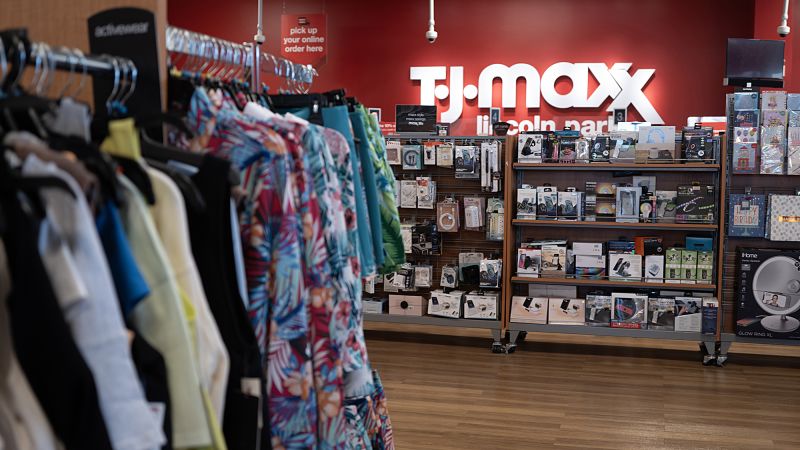
TJ Maxx says it will thrive on Trump’s tariff ‘chaos’
CNN
TJ Maxx is betting that Trump’s tariff plans will benefit the discount chain.
Companies and economists warn that President-elect Donald Trump’s plans to slap tariffs on all US imports will cause havoc in supply chains and raise prices for customers. But TJ Maxx believes that Trump’s tariff plans will benefit the discount chain. TJX, the parent company of TJ Maxx, Marshalls and HomeGoods, said Wednesday that the “chaos” Trump’s tariffs may bring to the retail industry plays right into its business model. Tariffs are taxes placed on imported goods designed to protect domestic manufacturers. Companies that import products pay the taxes and typically pass the extra cost on to customers in the form of higher prices. Unlike most brands and retailers, TJX says it only imports a small, undisclosed percentage of its merchandise from factories overseas. Instead, TJX relies mostly on buying designer brands’ excess merchandise straight from the brands, much of it after it’s already been imported — and then selling it to customers anywhere from 20% to 60% below regular prices. TJX’s “opportunistic buying” strategy capitalizes on supply chain disruptions, canceled orders and overproduction. And if an item is already in the US, any potential tariff would have already been paid by the first importer. TJX believes that Trump’s planned tariffs will create more opportunities to scoop up designer goods as companies race to bring in products early to avoid tariffs. More goods are expected to be imported into the US than normal for the remainder of this year as retailers face a potential resumption of the East Coast port strike, as well as tariff increases, the National Retail Federation said earlier this month. Imports are forecast to grow 13.6% in November from last year and 6.1% in December. “Manufacturers could bring in goods early,” TJX CEO Ernie Herrman said on an earnings call with analysts Wednesday following the company’s strong sales and profit growth during its latest quarter. “That could create even additional availability of goods at advantageous prices for us.” “That’s as likely a scenario as anything,” he said.













